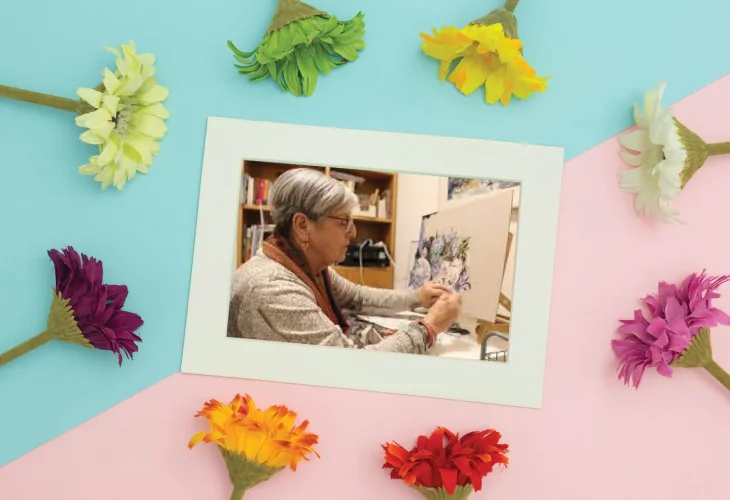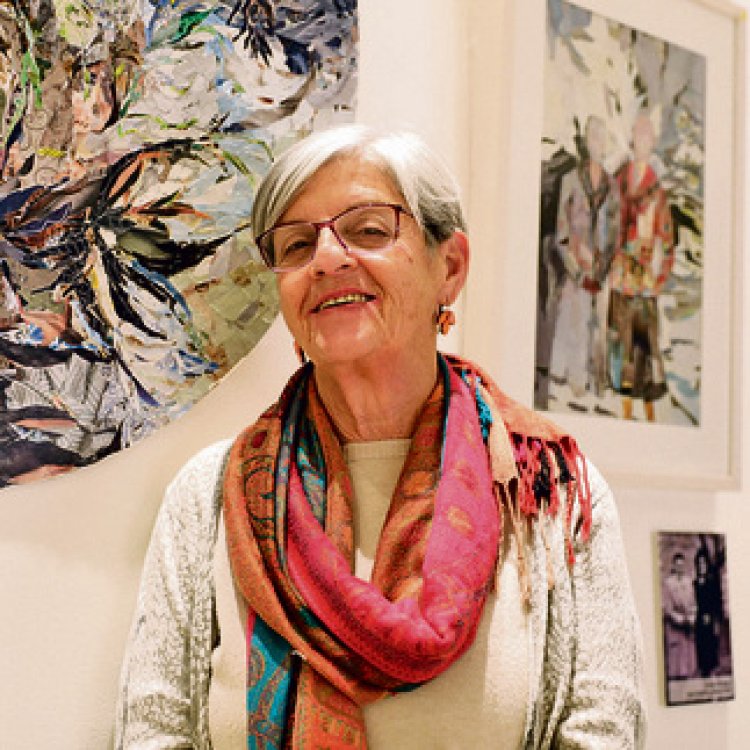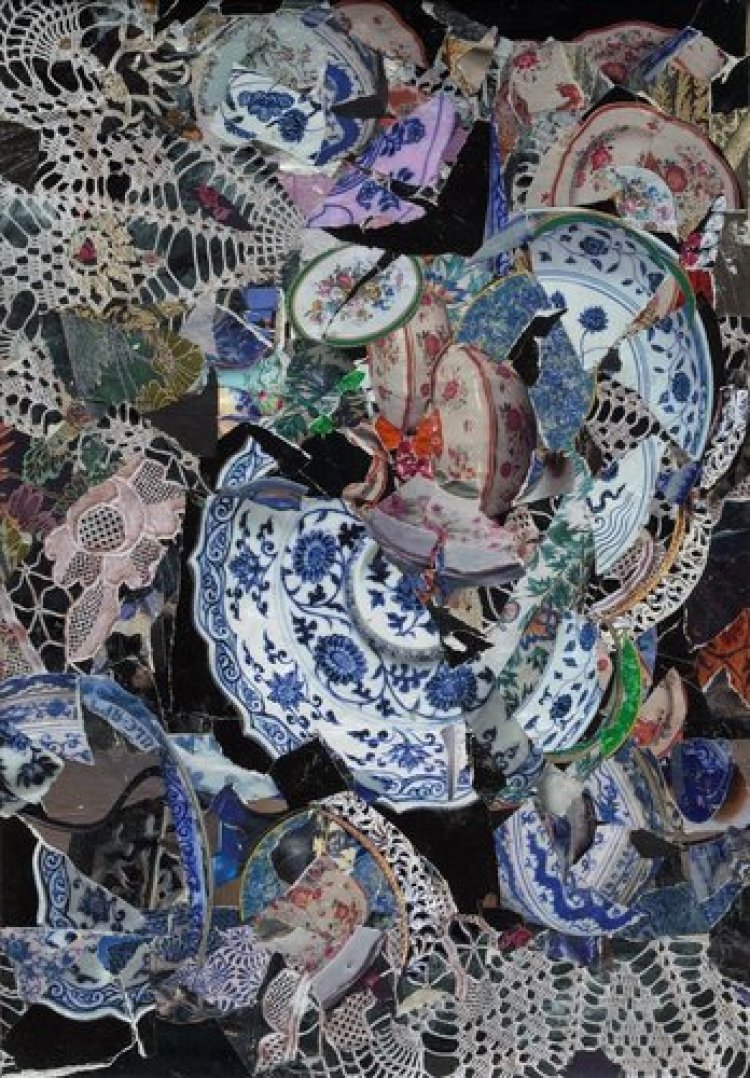Finding Love and Family at 46: A Journey of Unexpected Gifts
Hannah Ben Eliezer Curtis grew up an only child, never imagining she would embrace a husband and a large family after decades of singledom. After her husband's passing, she reflects, "Thanks to him, I wasn't left alone, and I learned that even from fragments, you can create a full picture."
 Hannah Ben Eliezer Curtis
Hannah Ben Eliezer CurtisUntil the age of 46, I was single, an only child to my parents. Then, in one single day, I became a wife, mother, and grandmother, receiving eight sisters-in-law and a giant family," shares Hannah Ben Eliezer Curtis, opening up about her heartfelt and twist-filled life journey.
Unlike other singles who struggle to find their match later in life, Hannah notes that her story was entirely different. "I am the daughter of Holocaust survivors, born in Czechoslovakia immediately after the war. My parents and I moved to Israel when I was a baby. As an only child, my parents were always very protective, but my childhood wasn't easy. They spoke Hungarian, and starting at age nine, I served as their translator and mediator. We had shiny porcelain dishes and lace, reminiscent of my mother's memories in Czechoslovakia; however, financially, life was hard, and my parents struggled greatly to maintain decent living conditions."
"Emotionally too, my childhood veered from the norm. My mother was constantly worried for me, afraid that others might harm me. At twenty, death touched me for the first time when my father passed away. I remember being in complete shock, entirely unprepared for such a loss."
"I believe that this trauma, along with never witnessing a typical family life, made me uninterested in marriage. I lived as a single woman in Tel Aviv for years, built a career, and managed a library for 24 years. My mother supported me from the sidelines, which allowed me to purchase a home and a car, and my situation was excellent."
 Hannah Ben Eliezer Curtis in her younger years
Hannah Ben Eliezer Curtis in her younger yearsA New Chapter: Wife, Mother, Grandma
Then at 46, just after completing my master's degree studies, I found my partner. "He was my complete opposite—hailing from a large family in the Nahlaot neighborhood of Jerusalem, whereas I came from Czechoslovakia. He was divorced with several children, and I was a single woman from Tel Aviv, but that didn’t stop us from deciding to live together. So practically overnight, I transitioned from a single Tel Avivian to a wife, mom, and grandma."
How did your mother react to this match?
"Initially, she was anxious, simply out of intense concern for my well-being. But over time, it became clear that the large family I was blessed with was the greatest gift I could have received. My mother realized this, especially in the last years of her life, when my husband cared for her even more than I did."
The next challenge in Hannah's life was her mother's passing, the person she was closest to. "My husband was with me and supported me throughout the year of mourning," Hannah recalls, "but then, just a year after my mother died, my husband passed away suddenly after a mere month and a half of illness. I was 62 when I ended up living alone again, this time without my mother. A year later, I retired from the job I loved, and suddenly my daily routine shifted—I returned to a big, empty house, by myself, without my husband."
"Initially, the trauma was too overwhelming to handle, but later I convinced myself that I could embrace being alone and lead a fulfilling life. I traveled the world, meeting fascinating people and joining various initiatives. Throughout it all, I maintained excellent relations with my late husband's family. Though I'm not the kind of grandma who regularly watches the grandkids, we often talk on the phone and meet up. His first granddaughter, who was just three months old when we met, is now 30, and we have a close relationship. I have maintained strong ties with my sisters-in-law as well; there are some I feel are just like my own sisters."
Hannah could have thought she'd paid all her dues, but about two years after her husband's passing, she was diagnosed with cancer. "I underwent a difficult surgery, and since it was caught early, I didn't need further treatment," she shares. "However, the struggle augmented the already challenging circumstances I found myself in. Yet it’s crucial to me to emphasize that I've never been alone. Even during recovery, family members constantly looked out for me, and friends enveloped me with love and support. Even today, six years after the cancer reappeared, everyone surrounds me, supporting me. There's no doubt I've been blessed."
 Hannah's artwork showcased
Hannah's artwork showcasedTransforming Fragments into Art
During her recovery, Hannah rediscovered her love for art. "I've been passionate about art since I was young," she explains. "I used to embroider and paint, decorating the house walls and investing a lot in aesthetics. Just before my husband's passing, as he was still alive, I delved into mosaic creating. Those days, we bought plates and broke them to make art from the fragments, but I wasn't satisfied with the results."
"While my husband was hospitalized, an idea suddenly struck me—'Why work with broken tools and stones when a simpler choice is available: a collage from paper?'"
Since that day, Hannah has been crafting art using collages—tiny pieces made from shredded newspapers and photos. "I've learned to generate lovely textures and stunning creations," she shares. "When the day came that my husband died, I realized the immense gift art provided me, as it's not just art but a message too—it's about taking something made, photographed, or written, tearing it apart, and using those very pieces to create something brand new. The fragments are a symbol of renewal. I've kept at it to this day, living in assisted living, giving regular workshops, and launching exhibitions like 'The Light at the End,' which is opening soon at the Global Art Gallery in Tel Aviv. I also sell my creations, sharing the message onward: 'You can recover from any challenge,' and it empowers everyone around me, and especially myself."

